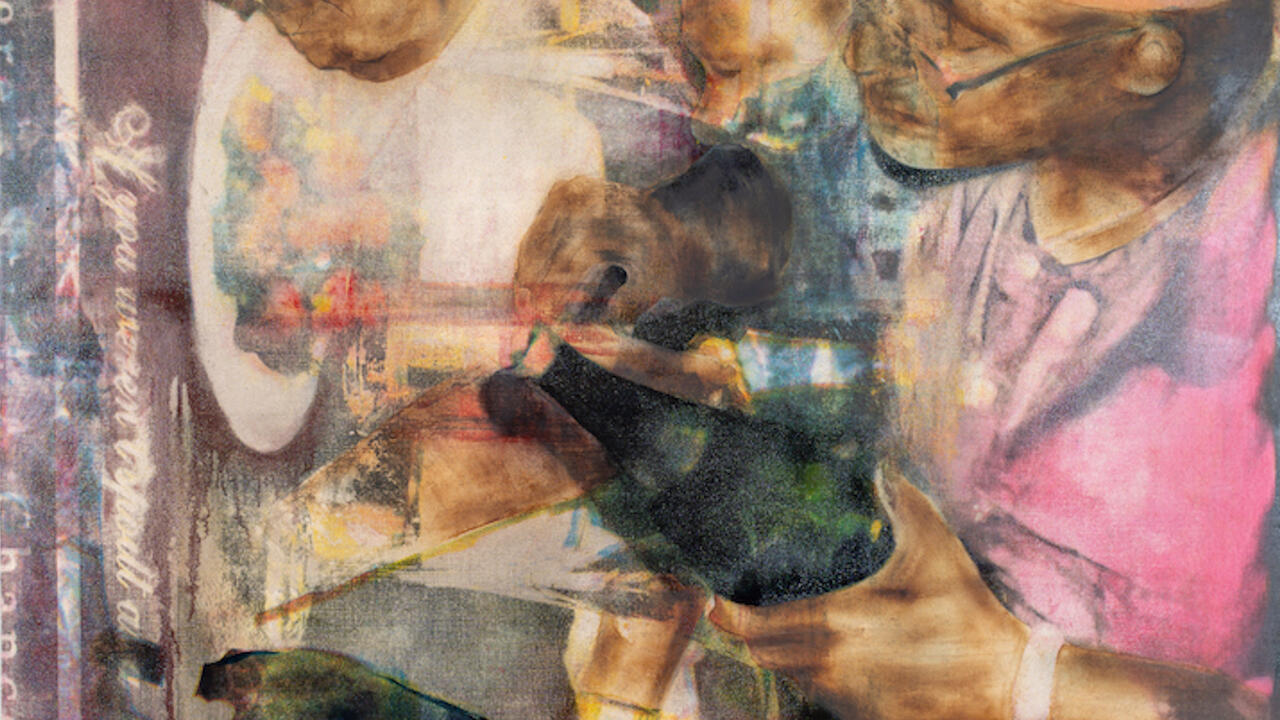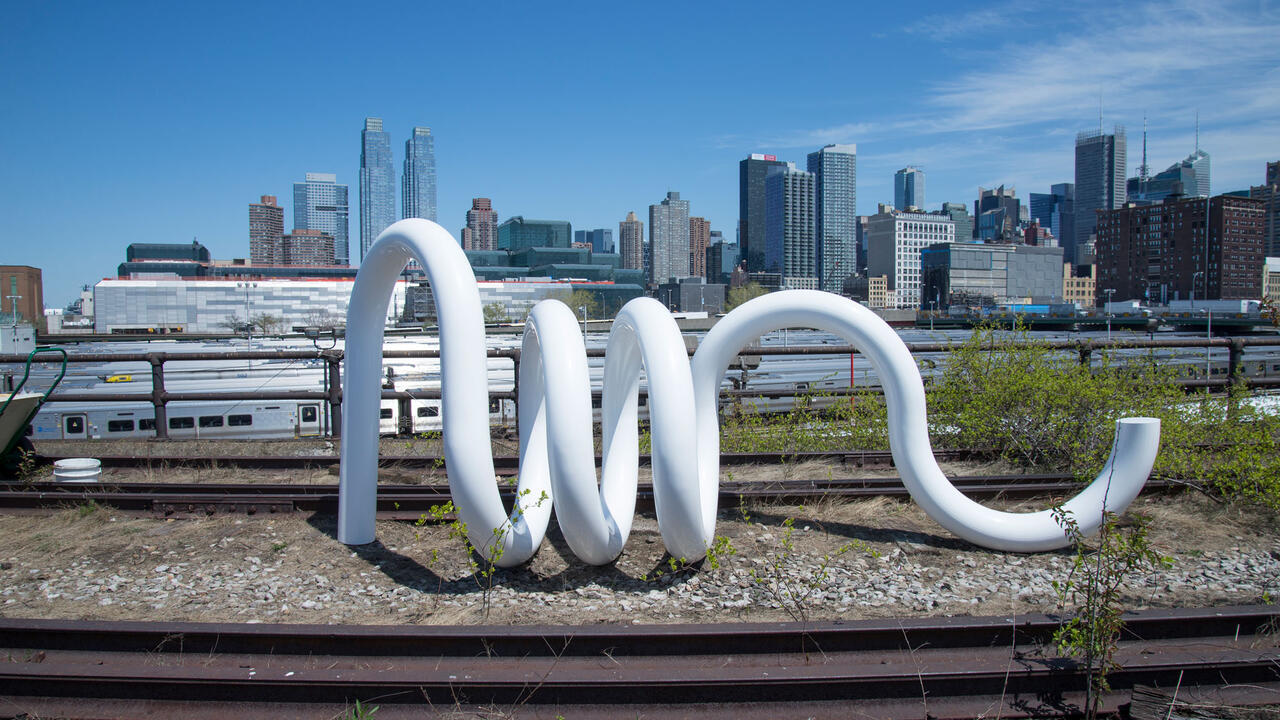Give Me Shelter
Franco ‘Bifo’ Berardi and Mark Fisher discuss exhaustion, the financial crisis, aesthetic resistance and the ‘slow cancellation of the future’
Franco ‘Bifo’ Berardi and Mark Fisher discuss exhaustion, the financial crisis, aesthetic resistance and the ‘slow cancellation of the future’

In the 1970s in Italy, theorist and activist Franco ‘Bifo’ Berardi was a key figure in the Autonomist movement. Autonomist ideas have been highly influential on recent anti-capitalist struggles, including Occupy. Berardi’s recent work has concentrated on the pathological effects of what he has termed ‘semiocapitalism’, powerfully analyzing the affective disorders that result from precarious labour and networked cyber-communication. In Capitalist Realism: Is There No Alternative? (Zer0, 2009), Mark Fisher discussed depression as one of the effects of the domination of culture by neo-liberal capital. Here, Berardi and Fisher explore the similarities and differences in their understanding of the current political situation. Berardi’s The Uprising: On Poetry and Finance was published by Semiotext(e) in November 2012. Fisher’s Ghosts of My Life: Writings on Depression, Hauntology and Lost Futures will be published by Zer0 in early 2013.
Mark Fisher The first chapter of my new book, Ghosts of My Life, is titled ‘The Slow Cancellation of the Future’ – a phrase I took from your 2011 book After the Future. The idea of the ‘slow cancellation of the future’ captures very well the sense of the ebbing away of a certain conception of cultural time. We live in what we might call a ‘post-progressive’ era, where the kind of retrospective time prophesied by Jean Baudrillard and Fredric Jameson is so taken for granted that it is hard to perceive. In After the Future, you wrote that you’ll never be able to adjust to this new mode of time – a feeling that I certainly share. We also agree on the explanation for the end of the future: the arrival of neo-liberalism and post-Fordist capitalism at the end of the 1970s. Since then, the end of the future has been intensified by the kinds of technology which have become dominant in the 21st century: smart-phones and cyberspace don’t speed up culture so much as overload the human nervous system with unmanageable quantities of stimuli.
But we disagree on the way out of this impasse. You’ve argued that, in a world where parliamentary politics and mainstream media are pawns of corporations, the best we can hope for is a withdrawal into technologically connected enclaves. In an important recent essay titled ‘Strategies of Radical Politics and Aesthetic Resistance’ [published on truthisconcrete.org in September 2012], the Belgian political theorist Chantal Mouffe contrasts this strategy with her own approach, which emphasizes the struggle for terrain. The role of radical politics and art, Mouffe argues, is to disarticulate the series of connections made by the currently dominant form of power, and to instead create a new set of connections. I must say that I agree.
Never in my lifetime has capitalist ideology been weaker; neo-liberalism is now played out as a force which has forward momentum (though that isn’t to say that it can’t continue in perpetuity as a zombie). Now isn’t the time to further withdraw from institutions but to reoccupy them. In fact, part of the reason that neo-liberalism became so dominant is that we did withdraw, persuaded that mainstream media was dead and that parliamentary politics was a waste of time. But the very success of neo-liberalism indicates that these things are far from dead. Of course, both parliament and the mainstream media are deeply decadent in the UK, Italy and many other countries, and it will take some time – perhaps a decade at least – before we could make a difference. But it seems to me that, if we want to recover the future, now is the time to re-engage with such institutions.
Franco 'Bifo' Berardi It isn’t easy for me to answer, because you’ve put your finger on a painful wound – that is, our present theoretical impotence in the face of the de-humanizing process provoked by finance capitalism. This feels like a sort of personal defeat. But I can’t deny reality, which seems to me to be this: the last wave of the movement – say 2010 to 2011 – was an attempt to revitalize a massive subjectivity. This attempt failed: we have been unable to stop the financial aggression. The movement has now disappeared, only emerging in the form of fragmentary explosions of despair. I use the term ‘the movement’ to refer to any form of mass action which is able to change the prevailing culture and perception. This is why I don’t think that in Greece at the moment we have a movement. It is only a despairing reaction to the devastation – it is reactive and isolated.
We should be able to produce a theoretical model which assumes that the form of subjectivation that we used to know is now over. The mutation that has infested the post-alphabetical generation – that is, the first generation to learn more words from the machine than from the mother – has deeply eroded the ability to solidarize. A process of social recomposition of precarious labour seems impossible, at least in the form of collective action, political solidarity and class consciousness. I really don’t know if that means that my generation is unable to see the new process of social composition that will one day give the new generation the opportunity to free themselves from fear and loneliness.
Mouffe writes that ‘various modes of artivist intervention influenced by the Situationist strategy of détournement like The Yes Men are very effective in disrupting the smooth image that corporate capitalism is trying to impose, bringing to the fore its repressive character’. This may be true, but the unveiling of the repressive character of power is not going to bring about rebellion. On the contrary, it only reinforces a sense of impotence. The techniques of subversion have been quite efficient in ‘revealing’ the true nature of financial capitalism, but consciousness of what is real is not class consciousness. It isn’t enough to only see the danger – you also need to be able to escape it or to dispel it. The majority of people hate finance capitalism but, as far as I can see, this hatred is turning into depression rather than into autonomy.
Mouffe adds: ‘One could also mention a variety of urban struggles like “Reclaim the streets” in Britain, the “Tute Bianche” in Italy, the “Stop Advertising” campaigns in France or the “Nike Ground-Rethinking Space” in Vienna – there exist a great variety of types of artistico-activist practices and of modes of communication-guerrilla.’ In the last 15 years, however, activism has been totally unable to stop the systematic offensive of corporations and financial agencies. Look at the last wave of struggles against the financial dictatorship, from UK Uncut to the Spanish acampada to Occupy Wall Street. This wave of movements has produced an effect of widespread awareness among the majority of the population, but it hasn’t slowed the dismantling of social life.
Not only is political activism unable to change the reality of finance capitalism, but the mainstream political parties cannot do anything if they do not follow the automatisms of power. Look at Barack Obama’s failure to change the American distribution of wealth, notwithstanding the huge support that he gathered in 2008. ‘Yes We Can’ turned swiftly into derision when he was obliged to bend to the force of financial power. I think that autonomy is only possible when people become able to change their daily lives – by breaking the links of dependence on consumerism and exploitation, for instance. In the last two or three years, however, I’ve started to believe that this precarious generation is unable to start a process of autonomization. This is because of a sort of psychic frailty produced by precariousness, competition and loneliness.
MF That is a very moving and honest answer, but I actually think you highlight the strengths of Mouffe’s position. Those strengths have, I think, to do with political strategies, rather than aesthetic ones. Mouffe’s examples of subversive or counter-hegemonic art were very unconvincing – the strategies of détournement she referred to have long since been incorporated by capital. Nothing sells better than anti-capitalism – look at the way corporations are depicted in Hollywood films such as Wall E [2008] and Avatar [2009]. It’s asking too much of art or culture to expect it to provide resources for overcoming the decomposition of solidarity that you so acutely describe. Art and culture are themselves the victims of this decomposition. Under post-Fordist working practices, neo-liberal ideology and communicative capitalism, social imagination struggles to find the time to grow. The current austerity programme in the UK – with its attacks on social housing, welfare benefits, squatting and higher-education funding – will make the unpressured time in which social imagination could develop even scarcer.
It’s not that the rise of finance capital is unstoppable, it’s that the strategies that the movement has deployed against it are not the right ones – it is easy for capital to route around them. Which is not to say that important things have not happened in the last decade or so: the wave of insurrection in the Middle East in 2011, for instance, showed that the so-called end of history is now over. But an intelligent system needs to learn from its failures, not keep repeating them. As David Harvey has said, we shouldn’t fetishize particular organizational forms. Rather, we need to do what neo-liberalism has done, and use an ensemble of different strategies. If the problem is, as you put it, the ‘bio-political embedding of psycho-economic automatisms in the social brain’ (and I think it is), then we need to struggle over the social brain. That means fighting for terrain in the dominant media ecologies, as well as in parliamentary politics. The value of Mouffe’s framework is precisely that it doesn’t assume that politicians are in control of everything. But parliamentary politics does remain a significant hub which finance capital still requires. (If it didn’t, why does it put so much effort into controlling it?) The point is to ‘articulate’ parliamentary politics with forces from outside.
What the movements need to do now is to make connections with existing institutions, such as political parties, trade unions and the mainstream media – and also to construct new institutions that are capable of exerting pressure. As you say, the loathing of finance capital is practically universal – but, of course, that won’t automatically translate into strategies that will hurt capital. You’re right to suggest that when the widespread disdain for finance capital is combined with the sense that nothing can be done about it, the result is despair rather than any collective ability to act. But it’s the role of institutions – the old ones that remain, and the new ones we must invent – to translate affect (and disaffection) into action. If it works, this action will be indirect rather than direct; it will be about gradually making changes in the social brain. We need to engage in libidinal engineering to counteract capital’s great machines for producing neurotic subjectivity. We need to look to Machiavelli, Antonio Gramsci and Stuart Hall instead of to the philosophies of the event we find in the writings of philosophers like Alain Badiou. We need to be both more patient and more confident than we have been. We need to reclaim the future whose disappearance you mourn, and that means recovering a prospective time, where we are not endlessly protesting against or obstructing capital, but thinking ahead of it. Here is the space for art to reinvent itself – as the site for a multiplicity of visions of a post-capitalist future.
FB I don’t mean that we should be opposing an aesthetic action to the power of capital. I’m not so naïve. I’m looking for (but not finding) an effective way to destroy the oppressing and depressing and impoverishing power of finance capitalism, which is essentially based on the submission of society. Why has society submitted so easily? This is the question that has to be explained and understood.
Notwithstanding the media’s pervasiveness, people know that banks are destroying their lives. Not everybody understands this, but a large part of society does. People know, but they are unable to change the automatisms of daily life. They have children (why do people have children? This is something I can’t understand); they need to buy a car and to fill it with petrol; they need money because only money can buy those things. They are obliged to accept the blackmail, and this is slowly modelling their minds, their sensibilities, their expectations. So they try not to think about what they know: that capitalism is destroying their lives, because these are the only lives they are capable of imagining and of living.
The problem is that contemporary capitalism can’t be altered by changing the laws. Not only are politicians intrinsically corrupt – if you want to get power, you need money, you have to be supported by big media and so on – but the machine of political decision is unable to change the automatisms of daily life. Only by changing things like our expectations or our ways of living in the city can we erode the power of capital. In order to change daily life we need social solidarity, but solidarity has been destroyed by precariousness and competition.
I don’t think that Machiavelli and Gramsci have much to say nowadays. The Machiavelli fortuna was the sphere of chaotic events of life that the prince has to govern. That idea was effective in the early modern times, because the complexity of fortune was low; few people were taking part in the political game, and information was easily controllable by the prince. The Gramscian strategy was based on cultural hegemony: influencing the sphere of social consciousness. The problem is very much the same today, but the speed and complexity of the infosphere makes things absolutely different. Media activism has been able to divert the flows of information, as the situation with WikiLeaks shows, and to expose the contradictions of power, but critical consciousness is not the problem any more. The problem is autonomy – the actual ability to withdraw from the automatisms that are supporting power.
Please do not think that I am adamant on this last point. Sometimes I say to myself: we should start a long-lasting project of construction of the European dispositif for social autonomy. (Actually we should have started this 20 years ago, in the wake of the Maastricht Treaty. Now it’s too late.) The lack of any form of Europe-wide organization is dramatically visible in the present situation, especially at the level of worker’s resistance: unions have a responsibility on this point. But I’m not sure that we could succeed in creating an effective front of resistance, because the dissolution of the worker’s force has not been a problem of organization but a problem of cultural expectations and forms of life. Now it’s too late, anyway: the storm is underway and we have no shelter.






















